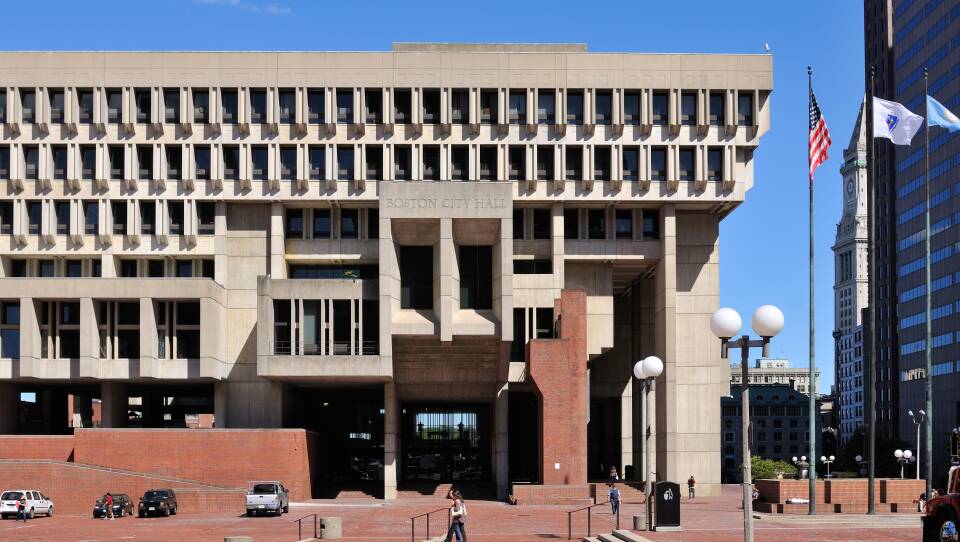The Boston City Council unanimously urged Mayor Michelle Wu to make changes to the city’s inclusionary development policy, a 22-year-old housing mitigation measure that exacts money — or a portion of housing units — from private developers building in the city.
Local developers say the proposed changes, which include expanding the scope of projects the policy would apply to, would make development more burdensome and ultimately choke the production of affordable housing.
The mayor, who has voiced support for revamping the policy, has yet to announce what changes she’d like to make as she enters her second year as mayor. City Hall insiders indicate, however, a new study and recommendation on the policy could arrive as soon as this week.
The council’s insistence to alter the policy manifested last Wednesday as a toothless resolution — one without any legal implications for the city. But its unanimous passage signals a collective impatience with the mayor on the issue of housing.
“This resolution is ultimately a call to action to the administration,” said Jamaica Plain-West Roxbury Councilor Kendra Lara, pointing to a hearing on the policy earlier in the year. “We’re a year in and we haven’t received an updated timeline” to reform the policy, she added.
More Politics
Boston’s inclusionary development policy is meant to create housing for residents who make too much to qualify for many low-income housing programs, but still don’t make enough to comfortably afford market-rate housing. It applies to market-rate housing projects with 10 or more units that need zoning relief. It sets aside a portion, typically 13%, of newly built units and designates them as income-restricted — a benchmark set by federally calculated affordability figures. Developers can alternatively pay a cash-out of as much as $380,000 per unit into the city’s Inclusionary Development Policy Fund to satisfy the mandate.
The council wants to lower the policy’s trigger threshold, applying it to projects with five or more units, and lower the affordability levels for any set-aside units so that just lower-income residents qualify.
Wu made affordable housing central to her 2021 campaign for mayor, pledging to push a rent-control proposal to address it. While vying for the seat, she expressed support for bumping the portion of units the city takes from developers — from 13% up to 20%.
In April, she tapped the housing research and consulting firm David Paul Rosen & Associates to study Boston’s inclusionary development policy with an eye toward demanding more affordable housing contributions from private developers. At the time, the Wu administration said the firm’s study and policy recommendations to the Mayor’s Office of Housing were scheduled for completion in September.
Councilors noted that the inclusionary development policy, unlike rent control, would only need action from city officials to be revised. Rent control would require action from the state.
“This is something that’s squarely within our jurisdiction here,” At-Large Councilor Ruthzee Louijeune said. “We needed action on this yesterday.”
“We are now four years overdue for an update,” Lara said, pointing to a previous study commissioned under former mayor Marty Walsh. “And every month that goes by, more luxury developments are being approved.”
Without a thorough overview, it is difficult to understand what portion of Boston’s development is subject to the inclusionary development policy’s demands.
Neither the Boston Planning and Development Agency nor Boston’s Office of Housing could immediately identify how many units the inclusionary development policy created this year, or what portion of the city’s overall residential development is captured by the scheme.
Through 2021, according to the Wu administration, the policy had directly created nearly 3,600 income-restricted units. Money from the IDP Fund has supported the construction, or preservation of, nearly 2,500 additional income-restricted units.
Those in the real estate sector say the changes to the policy would ruin the goal of producing more affordable housing units to ease demand and bring prices down.
“Forcing developers to meet increased government-set construction or funding benchmarks, especially in this high inflation and high interest rate environment, would have a chilling effect on housing construction across the city,” said Greg Vasil, CEO of the Greater Boston Real Estate Board, in a statement. The board, according to its website, represents more than 12,000 real estate professionals.
“Instead, we believe Boston should focus on decreasing barriers to housing construction, encouraging development across all price points and lowering overall costs,” Vasil said.
In 2019, as the city sought explicit power to alter the inclusionary development policy without state oversight, Pam Kocher, president of the local good governance agency the Boston Municipal Research Bureau, testified that any changes to the policy merit thorough study and market analysis by the city. This month, she added that any changes to city policy should hinge on both predictability and flexibility.
“Developers can more easily underwrite projects if they know the IDP rules in advance, assuming that the rules are workable and allow for some flexibility,” Kocher said in a statement to GBH News.
“The factors that influence development feasibility vary widely across product types, sites and neighborhoods, so city policy should allow for some flexibility to accommodate these varying circumstances.”
A 2016 study from the Washington, D.C.-based Urban Land Institute found that, while inclusionary development policies can be an effective housing generation tool in markets with booming development, developers in weaker, less active markets likely need a combination of incentives to take on the burden of building affordable housing.









